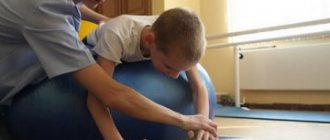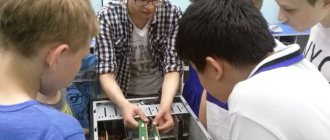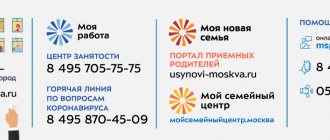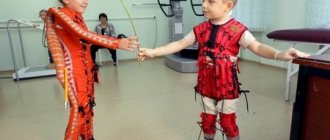Is your child moving from grade two to grade three? Is he unable to learn even a short poem? Does he write with errors, and the entire notebook is filled with red corrections?
If you spend the whole evening doing homework, and the next day your child again gets a D or a C, this does not mean that he is incapable of learning or is pathologically lazy. Most often, the reason lies in the insufficient formation of higher mental functions and immaturity of brain structures. A specialist called a neuropsychologist will help the child in this situation.
What does neuropsychology do?
This section of medicine and psychology studies the relationship between the functioning of the brain and behavior, the human psyche. In other words, a neuropsychologist is a doctor who can objectively assess the state of higher mental functions and help restore them (if they are lost due to severe injury or illness) or develop them when necessary.
The characteristics of brain development are individual for each person. Of great importance is how pregnancy and childbirth, early childhood proceeded, whether severe infections or injuries were suffered, whether developmental activities were appropriate for the child’s age, etc. A neuropsychologist identifies the strengths and weaknesses of the brain in order to bring them to the same level and do the work both hemispheres are more harmonious and productive.
Since a pediatrician evaluates the development and behavior of a child from the point of view of the laws of brain development, higher mental functions and personality and uses specific diagnostic methods, he can identify serious diseases at an early stage and develop the most effective correction program or formative education, taking into account individual characteristics baby.
Neuropsychological intervention process
Development of therapy methods:
- Assessment and diagnosis of a person’s neuropsychological status, as well as identifying the causes of speech disorder.
- Development of individual therapy programs.
- Conducting a check on the achievement of goals.
To assess and identify the problem, doctors use different methods:
- interviews with the person and his family members;
- study of medical records;
- observation;
- use of special tests.
Individualized treatment methods are then developed.
In what cases should you contact a pediatric neuropsychologist?
Most often, functional immaturity of brain structures in a neurologically healthy child manifests itself in the following situations:
- an age crisis sets in;
- education begins in kindergarten, school;
- mental or emotional stress increases sharply.
The situation is aggravated by stress or a difficult life situation, for example, parental divorce, loss of a close relative, moving to another city, etc. Functional immaturity of brain structures often occurs due to the fact that children at an early age are overloaded with “developmental activities.” It happens that a three-year-old toddler goes to Chinese, and to music, and to the theater. The result is the same thing that happens when a high-rise building is built on a weak foundation: it collapses.
Parents are surprised why a child who is formally fully ready for learning, that is, able to read, count, and write, begins to behave badly, receive unsatisfactory grades, and experiences difficulties in being in a group. Most parents begin to turn to tutors for help or punish their child, when in fact the real reason lies not in the child’s laziness, but in the lack of a solid “foundation” for successful learning.
It is necessary to show the child to a pediatric neuropsychologist in the following cases:
- the baby cannot control himself, “does not hear” the comments of adults;
- his behavior is explosive, impulsive;
- he is characterized by hyperactivity or excessive slowness;
- poorly coordinates his actions, does not orient himself in space, and over the age of 6 years does not know where right and left are;
- The child has illegible handwriting, he confuses the spelling of similar letters, mixes unvoiced and voiced sounds, writes “mirror”;
- cannot identify the main features of an object: color, size, weight, shape, purpose);
- he doesn’t remember the material well, and therefore studying is difficult for him;
- he is not able to independently complete a task in class or at home;
- the child gets tired quickly, is easily distracted, has difficulty concentrating on a task;
- he “does not see” the line, does not understand the simplest formulations of tasks, does not know how to perform actions according to a given algorithm;
- has difficulty mastering reading, writing, and counting.
In addition, the help of a neuropsychologist is necessary if the child has been studying with a speech therapist for a long time with practically zero results, or if he has a developmental delay - mental, speech, mental, psycho-speech.
Neuropsychological correction of speech disorders in children
There are certain methods and procedures aimed at correcting speech, as well as reducing the negative impact of pathology on a person’s life that arose as a result of brain damage.
The doctor uses the following neuropsychological techniques:
- Discursive method.
- Pencil and paper assignments.
- Computer programs.
Neuropsychological treatment aims to help children, adolescents and adults with a variety of neurological, medical and psychological conditions improve their daily functioning.
The treatment provided must take into account both the patient's reasons for seeking neuropsychological services and the secondary problems that have arisen. For children, treatment requires working with the child to learn to cope with emotions, control behavior, and cope with stress. However, much emphasis is placed on helping parents better guide their children by enabling them to change ineffective behavior patterns and interactions. Social skills training is an important component for children and adults, as this intervention will help make the child more effective in relationships with people and authority figures (such as parents and teachers).
Construction of a training program.
The construction of the program is in accordance with the development and formation of basic mental functions in ontogenesis. First, we engage in motor correction, which allows us to make up for lost time, form missing connections, and influence those functions that are associated with movement.
During a lesson with a pediatric neuropsychologist
We start from the “lying” position. Oculomotor exercises allow you to develop visual and auditory attention. The child, lying on his back, follows the object with his eyes or, in the same position with his eyes closed, guesses from which side the sound came. It should be noted that not all children succeed in these seemingly simple exercises. It turns out that it is very difficult to keep your eyes on the toy. Now imagine for a moment such a child in class. He looks at the board and... sees nothing. The gaze glides, not lingering on anything for long. And then the teachers are surprised how the child cannot accurately copy or copy...
Then we make sure to practice breathing. These exercises teach the child to relax his body, and also saturate the brain with oxygen, stimulating its activity. Proper breathing calms you and promotes concentration. Children really like to “ride the elevator” toy. At the “Inhale” signal, the child raises (smoothly!) his right hand, in which he is holding the toy, and at the “Exhale” signal, the hand lowers. To make it more complicated, we add an account. The count indicates the floors: “One – two” - these are two floors you need to go through. This is how the child learns to feel and control his body.
Sessions with a neuropsychologist
Classes with a neuropsychologist. Exercise "log"
Next we move on to crawling, which also teaches the child to control his body. If a child has learned to control his body, then we can say with confidence that he will be able to control his behavior. For example, the “Log” exercise: the child lies down across the room and rolls to the other end of the room, taking into account the landmarks in the form of toys placed on both sides so that they are at waist level. This exercise helps develop coordination of movements. Subsequently, his writing will be more even, the lines will not “float”. Exercises “Kitty” and “Caterpillar” allow you to work on switching and distributing attention.
We complete this part of the lesson with exercises while standing. This is how we go from baby to child. Particular attention is paid to the formation of spatial concepts. Their lack of development leads to difficulties in learning to count, write, draw, and read. The system of exercises reflects the formation of spatial concepts in ontogenesis: from understanding the body diagram, through understanding the position of one’s body in space to “quasi-space”. This block uses the following exercises, for example: “Fun exercises”, “Clothes pegs”. One of the children's favorite games is “Robots”. Essentially this is a motor dictation in space. I come to the store and am going to buy a Robot. I first check how it works: whether it can execute my commands correctly. There is so much joy in the eyes of the children who passed the tests and faithfully followed all my commands!
The second part of the lesson is devoted to cognitive correction. Particular attention is required to correct the properties of attention and voluntary regulation of actions, since they are the foundation of all mental functions. A game that evokes delight and requests to play it again - “Matryoshkino”, works great for the development of thinking, voluntary activity and helps to overcome impulsiveness. We have accumulated a sufficient arsenal of games and exercises, so there is always a choice.
conclusions
A child psychologist is a specialist who helps children and their parents harmonize relationships, overcome life’s difficulties and adversities, and normalize the child’s behavior and emotional state. A psychologist works only with healthy children and their families, so we are never talking about making diagnoses or prescribing medications, only psychiatrists and neurologists do this.
Difficulties happen in the life of any family, and sessions with a psychologist allow you to overcome them faster and more effectively. The principles of providing psychological assistance make such activities safe: specialists always monitor the confidentiality of data, use only proven work methods, are always on the client’s side and never work outside their area of competence. In addition, the psychologist never insists on the only correct decision and, moreover, does not condemn family members.
Psychologist and neuropsychologist: differences
Many parents do not know the difference between a psychologist and a neuropsychologist.
There is a huge difference between these specialties. A psychologist has nothing to do with medicine. This is a humanitarian who can help you understand yourself and identify the origins of problems in your personal life. A neuropsychologist is a clinical psychologist who works with individuals with developmental disabilities. His tasks include their identification and further neurocorrection without the use of drugs.
In other words, we complain about fate to a psychologist, but learn to think with a neuropsychologist.
Prices for neuropsychology of childhood
| Types of activities | Cost of one lesson/session | Duration of one lesson/session | Recommended number of classes/sessions |
| Individual neuropsychological session | 1000 rub. | 45 min. | from 2 times a week |
| Group neuropsychological session | 800 rub. | 45 min. | from 2 times a week |
is actively involved in the neuropsychology of childhood. Our specialists diagnose children, identify pathologies and develop individual correction programs. We use current methods of child neuropsychology that allow us to effectively get rid of existing problems.











